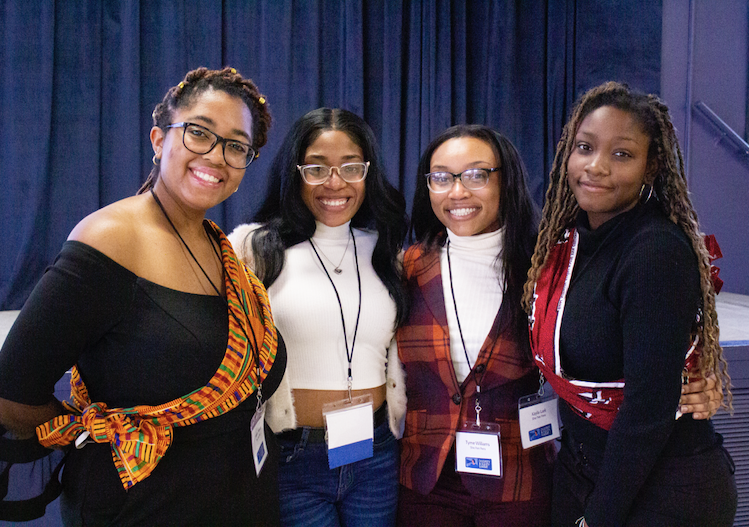The second annual Equity Summit at Daemen—with a theme of “Calling All Social Justice Seekers”—engaged attendees in conversations about how to increase social justice on campus and beyond.
Hosted by the university’s Center for Diversity & Inclusion, the summit also included the inaugural Campus Justice Challenge, which saw teams—of students, staff and faculty—pitch proposals for projects that would address issues of accessibility and fairness on campus.
The judges decided that each project will receive funds, with implementation planned for the fall semester; these include:
- the Period Product Initiative, which would address a lack of access to menstrual products and hygiene facilities;
- a Matched Mentorship program, through which students of color can mentor incoming students of color and offer guidance, encouragement, advice and the opportunity to work with a racially/ethnic congruent role model;
- the Strong Black Women Schema (SBWS) study, which will try to better understand gendered racism and its impact on Black women’s mental health, self-esteem, and self presentation—as well as how related trauma presents itself in everyday symptoms.
“All of the pitches offered practical solutions that showed promise of not only relieving the issues in the moment, but to make a long-term and sustainable impact in our campus community,” said Heike Peckruhn, associate professor and chair of the Department of Philosophy and Religious Studies, who helped organize the new event, which could become an annual tradition on campus.
The summit also featured keynote speaker Danielle Johnson, the senior advisor and coordinator for the Daniel Acker Scholars Program at the University at Buffalo (UB), former chair of the Justice & Opportunity Coalition with Open Buffalo and a current board member with the organization.
Johnson spoke of her work providing jail support to protestors—waiting outside of holding centers for protestors to be released and transported to safe locations—a member of the Campaign for Alternatives to Isolated Confinement (CAIC), Prisoners are People, Too, and the Alliance of Families for Justice.
“What I hope the audience took away from seeing and hearing their peers is that they too can be part of the change and should feel empowered to identify areas of need because they are Daemen and the Daemen experience is theirs too,” said Tiffany Hamilton, chief diversity officer/Title IX coordinator and director of the Arthur O. Eve HEOP.
Overall, Hamilton said the summit showcased, “what we mean when we say diversity, equity and inclusion, [which are] inclusive of all the ways we think, live and learn. It is also a mirror that allows us to check our own reflection and to really examine who we are and who we want to be,” she said.
Hamilton added, “The more opportunities we have to take the deep dive into the soul of the university, the closer we will get to actualizing our goals.”


